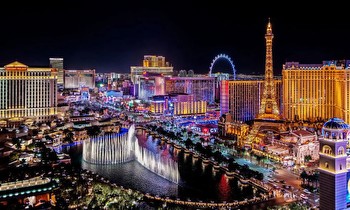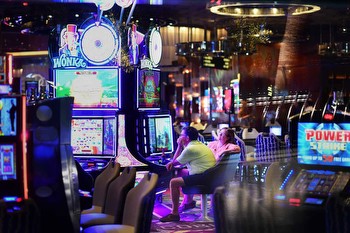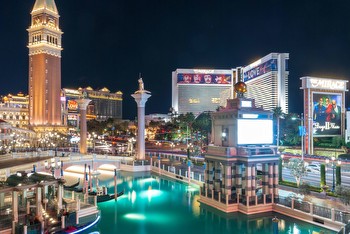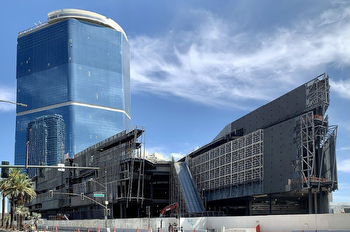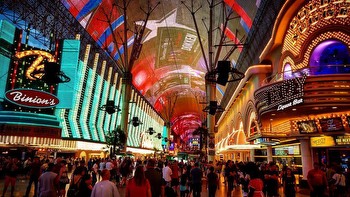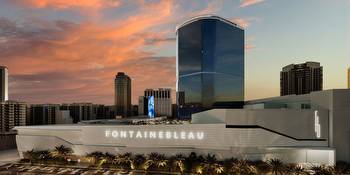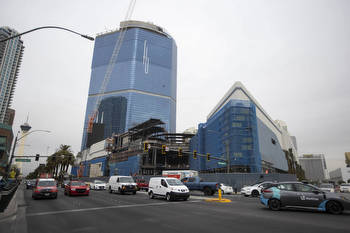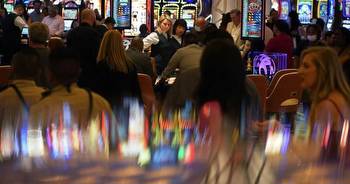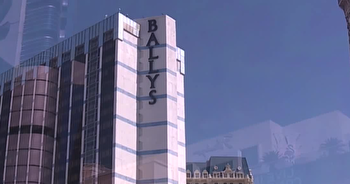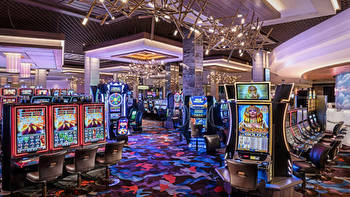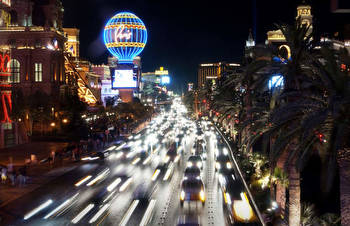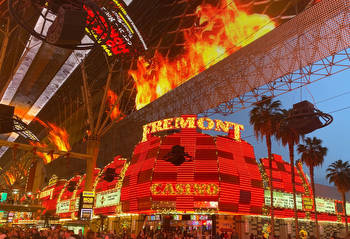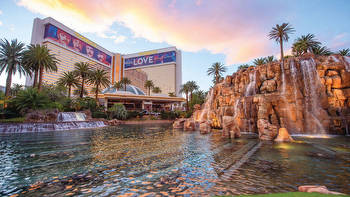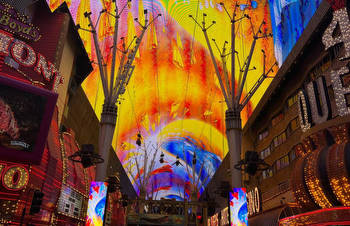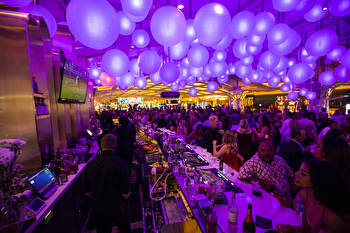Fontainebleau has finally arrived in Las Vegas. Was it worth the wait?

If you watched football on Sunday, you saw the ads. If you were on the Las Vegas Strip last week, you might have seen the crowds. But they weren’t near Caesars or Bellagio or Wynn.
They were on the north end of the Strip, which, if you’d said was cursed because it’s tried for years to become more popular, few would doubt you.
Especially when it came to the Fontainebleau.
Construction on the 3,600-room mega-resort stopped in 2009 during the Great Recession — even though it was 90 percent done and cost about $2 billion. Its furniture was sold or given away. The Clark County Fire Department used the skyscraper, more than two football fields in height, for fire practice.
Aside from that, it sat mothballed for 14 years. Some argued it should be torn down, that it was a skyline eyesore. Others said that more than a decade in the elements would render it useless or at least less than the luxury resort it was intended to be.
After it opened last week, those doubters have mostly gone silent.
Reviews are raving about its luxury, service and, in a city where all casinos start to look alike, especially to locals, its uniqueness.
Two gaming experts — Casino Life editor-in-chief David McKee and Las Vegas Advisor publisher Anthony Curtis — weighed in on the property's long-awaited opening, and whether its high-end product makes sense for Las Vegas.
On how the Fontainebleau avoided implosion during its years in stasis: "Well, it was just too big to be allowed to fail," says McKee. "In this case, ... there was so much constructed and so much had been invested that it was too much trouble to take it down. It was a question of sitting on it until somebody came along who was deep-pocketed enough to make that happen. [Developer and former Fontainebleau owner Steven] Wykoff wasn't the person to do it, [and] the Soffers did so at a cost of $1.7 billion. But you can see how long it took them to come up with that sort of capital and for the market to be sufficiently recovered — [and] for that to be worthwhile."
On how room rates and gaming revenue remain high after the post-pandemic visitor boom: "Consumers have more disposable income than the news coverage would reflect and that's manifested by the fact that Wynn Las Vegas and Encore can demand and get $400 a night for a room," says McKee. "And this is before international tourism has fully come back to Las Vegas, which, if it does, would soften any kind of flattening that we might be seeing in the market."
On its luxurious aesthetic: "It's just beautiful," says Curtis. "It's palatial. I mean, the ceilings are very high. For one thing, you go into a lot of casinos, they have lower, lower ceilings, and that's a gaming thing. It's something they do to make people feel like they want to play more as opposed to looking around and being distracted. ... The people walking around there are gorgeous. ... I'm looking around and going, I don't belong here."
On whether locals will flock to the property: "It's two things," says Curtis. "It's convenience. And these big giant places on the Strip are not convenient for them to go. And the second is the gaming product. And [Fountainbleau] keeps opening very tight. You know, by tight I mean the games with the rules with the video poker schedules, they do not compete with a lot of the locals' casinos or the Downtown casinos. I mean, the new locals' Vegas is really Downtown. That's where you're still gonna find better deals."
They're flocking to the other new casino, the Durango. Could that level out?: "Locals are a discerning group ... and they'll see that [the casino] pay tables are not as good," says Curtis. "And I think that Station [Casinos] is taking a risk here. And I know they did it on purpose. They want a higher margin. Let's see if they get away with it. I don't think they will. I think people will begin to discover that and say, I'm going back to where I used to go."
Guests: David McKee, editor-in-chief, Casino Life magazine and gaming columnist, Las Vegas Advisor; Anthony Curtis, publisher, Las Vegas Advisor








